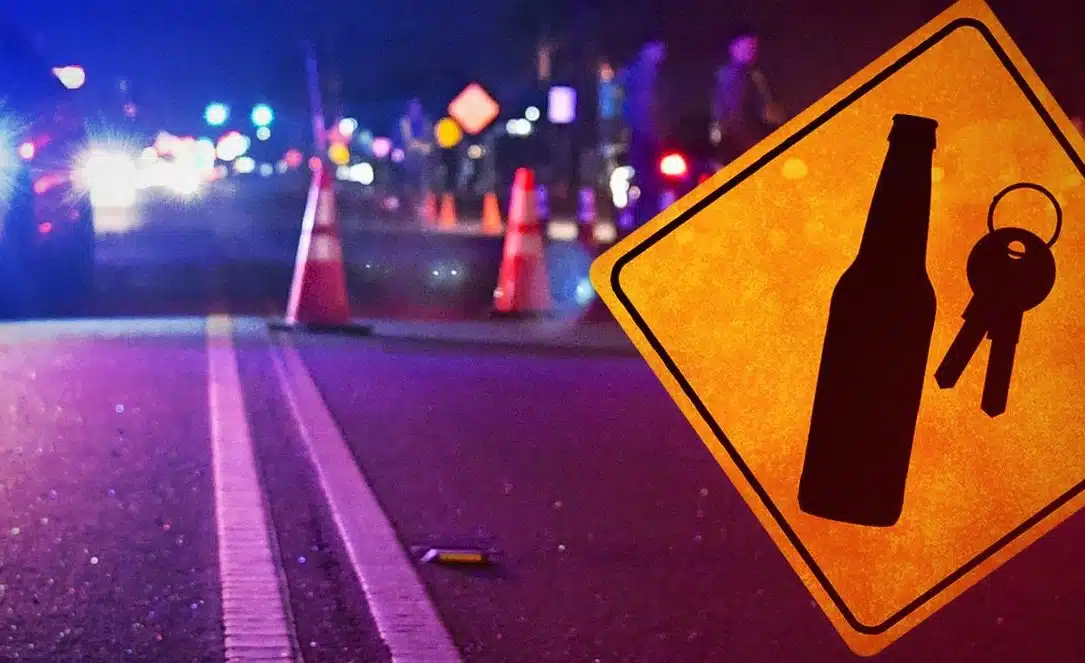What Is The Difference Between A DUI And A DWI?
Posted by David C. Hardy on June 27, 2022

Although many people use the terms DUI and DWI interchangeably, each term represents something slightly different. Florida law uses the term DUI, while other states, like Rhode Island and New York, use the term DWI.
DUI vs. DWI

In Florida, the term DUI refers to ‘driving under the influence.’ Florida law establishes this as the legal term for impaired driving. There are other states that use the acronym, DWI, which stands for ‘driving while intoxicated,’ or in some cases, ‘driving while impaired.’
A Florida DUI can apply to drivers under the influence of alcohol or drugs (either illicit or over-the-counter). In Florida, the legal breath alcohol limit for most drivers is .08. If the person is driving a commercial vehicle, the legal breath alcohol limit is .04. If the person is under the age of 21, the legal limit is .02.
A police officer conducting a DUI investigation in Florida may request that a driver submit to field sobriety exercises or a chemical test, such as a breathalyzer. If the driver refuses to perform the field sobriety exercises or take a breathalyzer test, the officer will take that fact into consideration when deciding whether or not to arrest the driver for DUI.
Florida’s DUI Penalties

Florida has strict penalties in place for driving under the influence. The specific penalty depends on the driver’s history and other circumstances.
For A First Florida DUI Conviction
Drivers convicted of a Florida DUI for the first time generally face lesser penalties than a second or third DUI conviction. The penalties often includes the following: 12 months probation, a fine between $500 and $2000, a 6 to 12 month revocation of the person’s driver’s license, the installation of an ignition interlock (if the person’s breath alcohol was at or above .15), a 10 day vehicle impound, completion of DUI school Level I, 50 hours of community service, and court costs.
Contact The Hardy Law Firm Today – Experienced DUI Defense Lawyers In Tampa
For A Second Conviction within 5 Years of a Prior DUI Conviction
A person that is facing their second DUI within 5 years of a prior DUI faces a minimum mandatory 10 day jail sentence. Sometimes, however, it is possible to avoid this 10 day minimum mandatory. A skilled and experienced DUI attorney can assist you to determine if you might be eligible to avoid the 10 day mandatory jail sentence. Other penalties for a second DUI conviction within 5 years of a prior DUI conviction include up to 12 months of probation, a fine of up to $4000 in certain cases, a 5 year revocation of the person’s driver’s license, an ignition interlock, a 10 day vehicle impound, completion of DUI school Level II, 50 hours of community service and court costs.
For a Second DUI conviction outside 5 Years of a Prior DUI Conviction
A person that is facing their second DUI outside 5 years of a prior DUI conviction faces a maximum sentence of 9 months in jail, but if the person’s breath alcohol content was above .15 the person faces up to a year in jail. Other penalties for a second DUI conviction outside 5 years of a prior DUI conviction include up to 12 months of probation, a fine of up to $4000 in certain cases, a 6 to 12 month revocation of the person’s driver’s license, an ignition interlock, a 10 day vehicle impound, completion of DUI school Level II, 50 hours of community service and court costs.
For A Third DUI Conviction (Within 10 Years Of A Prior DUI Conviction)
Drivers facing their third DUI conviction face harsher penalties. The penalty for a third conviction is a third-degree felony, providing one of the prior DUI’S is within ten years of new DUI. The felony means it is punishable by a fine of up to $5,000 and up to five years imprisonment. A person convicted of a third DUI which took place within 10 years of a prior DUI conviction faces a minimum of 30 days in jail. Upon release from incarceration, the person faces up to 5 years of probation.
Also, a person convicted of a third DUI that was within 10 years of a prior DUI will have their driver’s license revoked for 10 years. After 2 years, the person may be eligible for a hardship license, but the person must install an interlock device at their own expense. The device must remain in the vehicle for two years.
For A Third DUI Conviction (Outside 10 Years Of A Prior Conviction)
The penalty for a third conviction that is not within 10 years of a prior DUI conviction is up to one year in jail. Other penalties often includes the following: 12 months probation, a fine between $2000 and $5,000, a 6 to 12 month revocation of the person’s driver’s license, the installation of an ignition interlock for two years, a 10 day vehicle impound, completion of DUI school Level II, 50 hours of community service, and court costs.
Penalties Associated With Refusal To Take The DUI Test
Florida’s implied consent law states that all drivers lawfully arrested for drunk driving must submit breath, blood, or urine tests. Should the driver unlawfully refuse any of these tests, they will face license revocation for one year.
If a driver refuses a breath test twice, they can be charged with a first degree misdemeanor.
Conclusion
In Florida, or anywhere else in the United States, a DUI or DWI is a serious offense. While there are differentiations between first, second, and third time DUI offenders, the potential consequences for any Florida DUI can be severe.
If you or a loved one has been arrested for a DUI in the Tampa Bay Area, consider enlisting the help of a skilled DUI attorney. Your attorney can help you navigate the legal system and, in some cases, your DUI case may be reduced or dismissed.
Posted in Florida DUI Defense

David C. Hardy
David C. Hardy is a criminal defense attorney with offices in Tampa, Florida. He is a former prosecutor that is Board Certified by the Florida Bar and The National Board of Trial advocacy as an expert in criminal trial law. He practices in the areas of federal criminal defense, Florida criminal defense, and Florida DUI defense.
